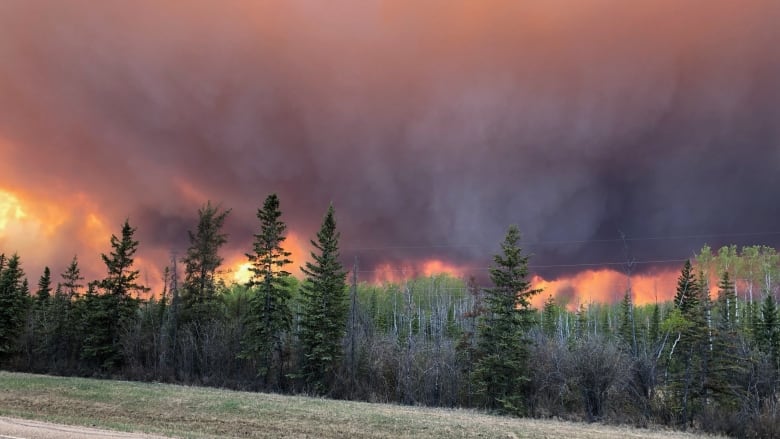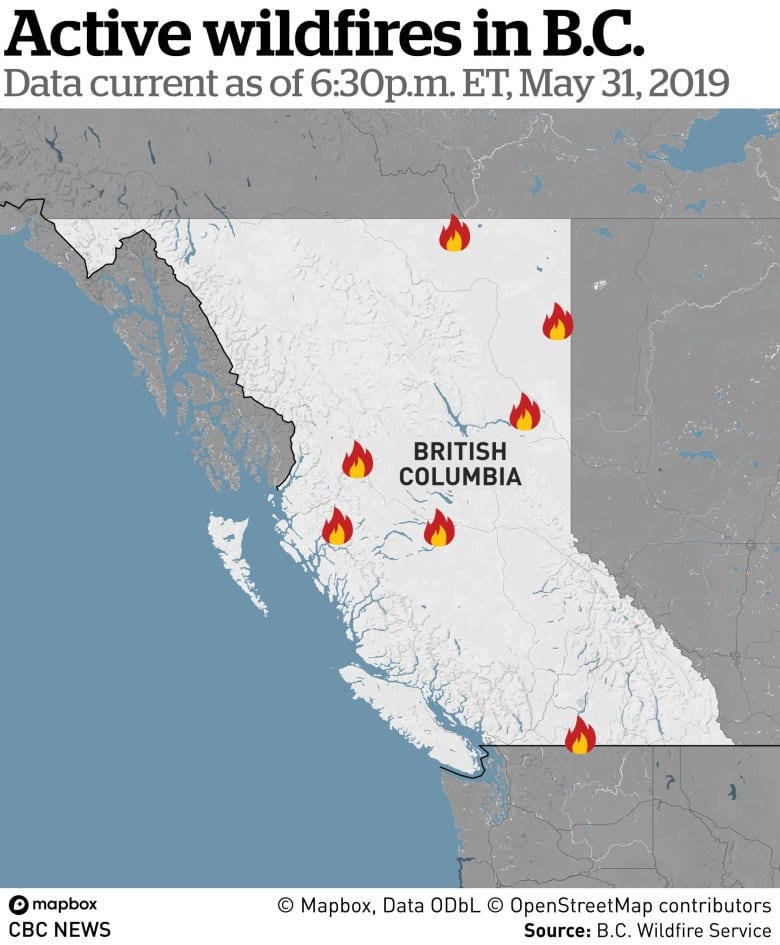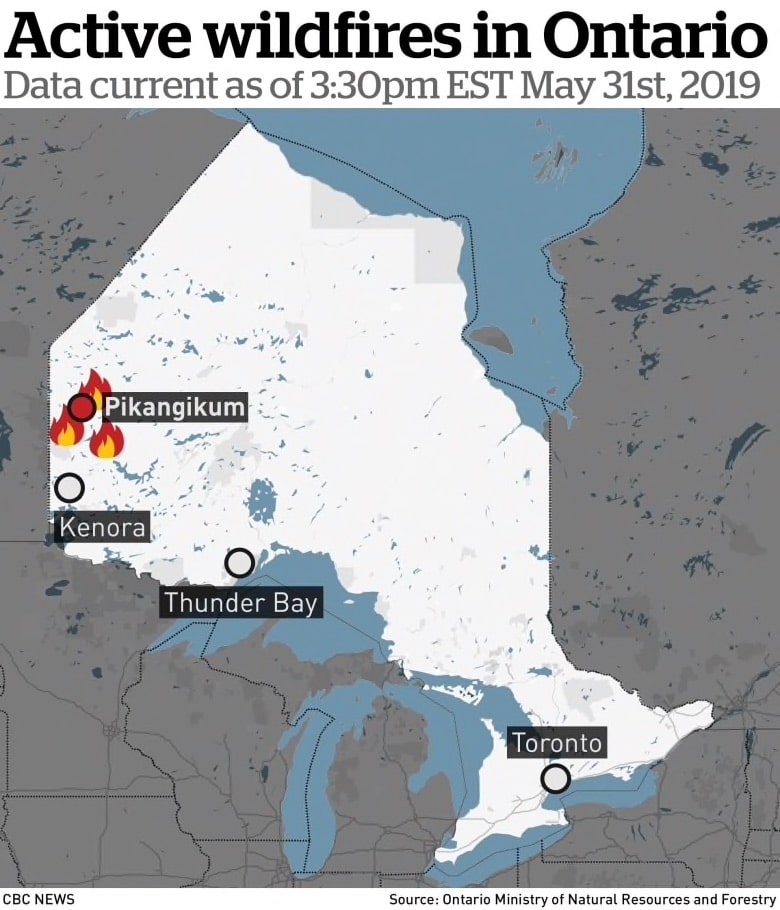
Forest fire season in Canada is already in full swing, with multiple communities under evacuation orders and thick smoke covering parts of Alberta, BC, and northern Ontario, reports CBC. In northern Alberta, tinder-dry conditions and intense heat have led to an explosive growth in wildfires, forcing about 10,000 people from their homes.
Trout Lake, AB, a community about 190-miles northeast of Grand Prairie, came under an evacuation order Friday morning. A 133,000-hectare fire is raging about 9-miles south of the community. About 5,000 people from the nearby community of High Level, AB, have been out of their homes for more than a week.
Several other communities in the region, including Wabasca, the Bigstone Cree Nation and Chipewyan Lake Village, have fallen under evacuation orders since Wednesday.
“This fight is going to be a tough one,” said Devin Dreeshen, Alberta’s minister of agriculture and forestry. “The weather is not co-operating for the long-distance forecast for the next two weeks. It’s more of the same, of hot, dry and windy conditions. Albertans need to prepare themselves for this situation for the foreseeable future.”

Similar conditions are hampering firefighting efforts in northern BC. More than 230 blazes have been recorded since fire season in the province began on April 1 and of the 42 fires currently burning, nearly 65 percent were caused by humans.
The fire danger rating is listed as high to extreme across most of the Northwest and Prince George fire centers, which encompass the northern half of BC, while large sections of the Coastal Fire Centre, which includes all of the South Coast and Vancouver Island, are also rated at high risk for a blaze.
In response to the drought gripping much of the province and continued blazes, the BC Wildfire Service is setting up a 150-person camp in the Dease Lake area in BC’s northern interior a few hours south of the Yukon border. The camp to house firefighters and to oversee efforts to battle blazes is not linked to any specific fire; instead, the service expects potential new wildfire activity with the parched conditions.
“Firefighters will work out of the Dease Lake fire camp on a rotational basis throughout the summer. This will allow for quicker response times to new fire starts,” the service said in a statement.
A 3,000-hectare blaze has caused a state of emergency on Pikangikum First Nation north of Thunder Bay, Ont. Hundreds of people are being evacuated from the community, officials said Friday.

Crews are fighting the fire as members of the Canadian Rangers and the Canadian Armed Forces help co-ordinate evacuations from the community of 3,800. Evacuees are slated to be taken to Thunder Bay, Sioux Lookout and potentially other communities in northern Ontario.
Two CH-147 Chinook helicopters and Hercules aircraft are helping to get them out.
“Noting the seriousness of the situation, we have those assets participating so that if we do need to move a large number of people, they can help move a significant portion of them out of harm’s way,” said David Lavallee, a spokesperson for the Royal Canadian Air Force (RCAF).
As of Friday afternoon, RCAF does not know how many it will be asked to fly out, Lavallee added.
Experts in fire management said the destruction and human cost of these blazes will intensify in the coming years as the climate changes.
“We can’t always rely on our experience and the history of what we’ve seen in fire; we’re moving into new territory,” said Mike Flannigan, a professor of wildland fire at the University of Alberta.
An average of about 2.5 million hectares of land is charred every year during Canada’s annual wildfire season, he said. “That’s half the size of Nova Scotia, and it’s doubled since the early ’70s due to our changing climate,” said Flannigan.
His research suggests the size of land consumed by wildfires will double or quadruple, again, as the Earth heats up.